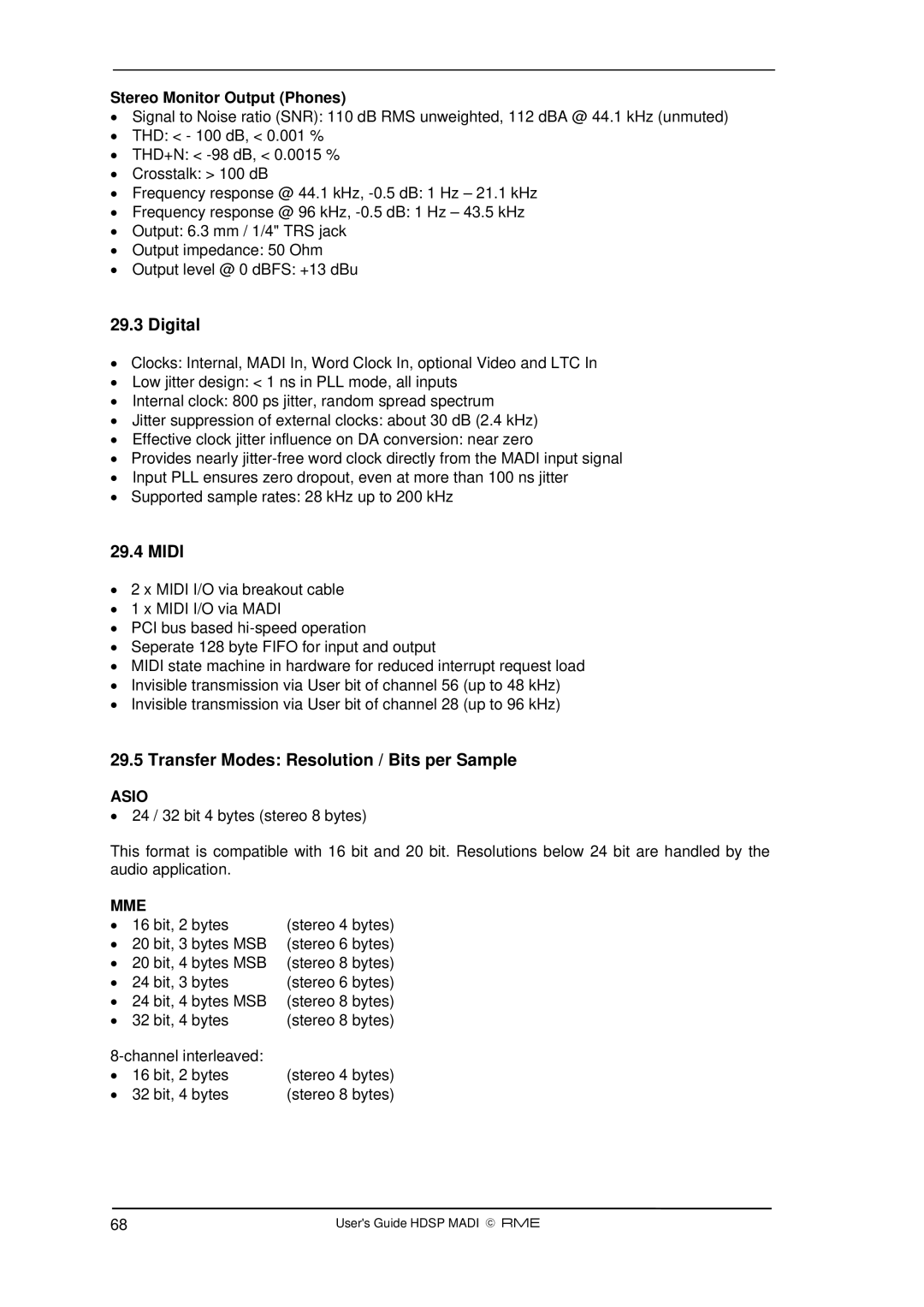
Stereo Monitor Output (Phones)
•Signal to Noise ratio (SNR): 110 dB RMS unweighted, 112 dBA @ 44.1 kHz (unmuted)
•THD: < - 100 dB, < 0.001 %
•THD+N: <
•Crosstalk: > 100 dB
•Frequency response @ 44.1 kHz,
•Frequency response @ 96 kHz,
•Output: 6.3 mm / 1/4" TRS jack
•Output impedance: 50 Ohm
•Output level @ 0 dBFS: +13 dBu
29.3 Digital
•Clocks: Internal, MADI In, Word Clock In, optional Video and LTC In
•Low jitter design: < 1 ns in PLL mode, all inputs
•Internal clock: 800 ps jitter, random spread spectrum
•Jitter suppression of external clocks: about 30 dB (2.4 kHz)
•Effective clock jitter influence on DA conversion: near zero
•Provides nearly
•Input PLL ensures zero dropout, even at more than 100 ns jitter
•Supported sample rates: 28 kHz up to 200 kHz
29.4 MIDI
•2 x MIDI I/O via breakout cable
•1 x MIDI I/O via MADI
•PCI bus based
•Seperate 128 byte FIFO for input and output
•MIDI state machine in hardware for reduced interrupt request load
•Invisible transmission via User bit of channel 56 (up to 48 kHz)
•Invisible transmission via User bit of channel 28 (up to 96 kHz)
29.5 Transfer Modes: Resolution / Bits per Sample
ASIO
•24 / 32 bit 4 bytes (stereo 8 bytes)
This format is compatible with 16 bit and 20 bit. Resolutions below 24 bit are handled by the audio application.
MME |
|
• 16 bit, 2 bytes | (stereo 4 bytes) |
• 20 bit, 3 bytes MSB | (stereo 6 bytes) |
• 20 bit, 4 bytes MSB | (stereo 8 bytes) |
• 24 bit, 3 bytes | (stereo 6 bytes) |
• 24 bit, 4 bytes MSB | (stereo 8 bytes) |
• 32 bit, 4 bytes | (stereo 8 bytes) |
| |
• 16 bit, 2 bytes | (stereo 4 bytes) |
• 32 bit, 4 bytes | (stereo 8 bytes) |
68 | User's Guide HDSP MADI © RME |
